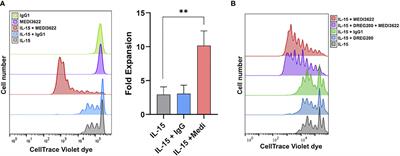RETRACTION
Published on 04 Sep 2023
Retraction: CAR-NK Cell: a new paradigm in tumor immunotherapy
doi 10.3389/fonc.2023.1285219
- 2,018 views
45k
Total downloads
165k
Total views and downloads
Select the journal/section where you want your idea to be submitted:
RETRACTION
Published on 04 Sep 2023
EDITORIAL
Published on 19 Aug 2022
REVIEW
Published on 02 Jun 2022

REVIEW
Published on 14 Apr 2022

REVIEW
Published on 15 Feb 2022

REVIEW
Published on 03 Feb 2022

MINI REVIEW
Published on 24 Nov 2021

REVIEW
Published on 27 Oct 2021

ORIGINAL RESEARCH
Published on 25 Oct 2021

ORIGINAL RESEARCH
Published on 22 Jul 2021

REVIEW
Published on 10 Jun 2021

Frontiers in Oncology